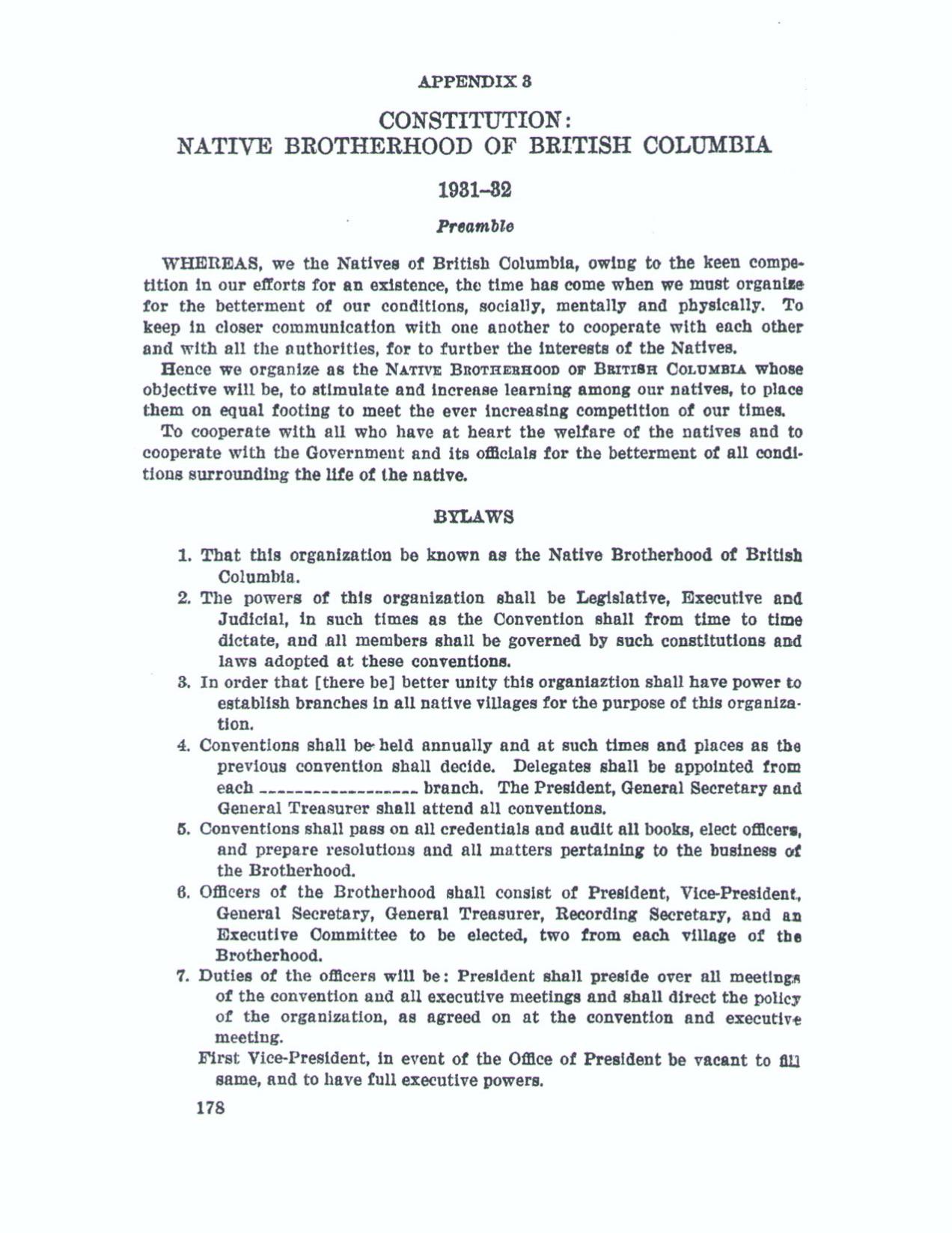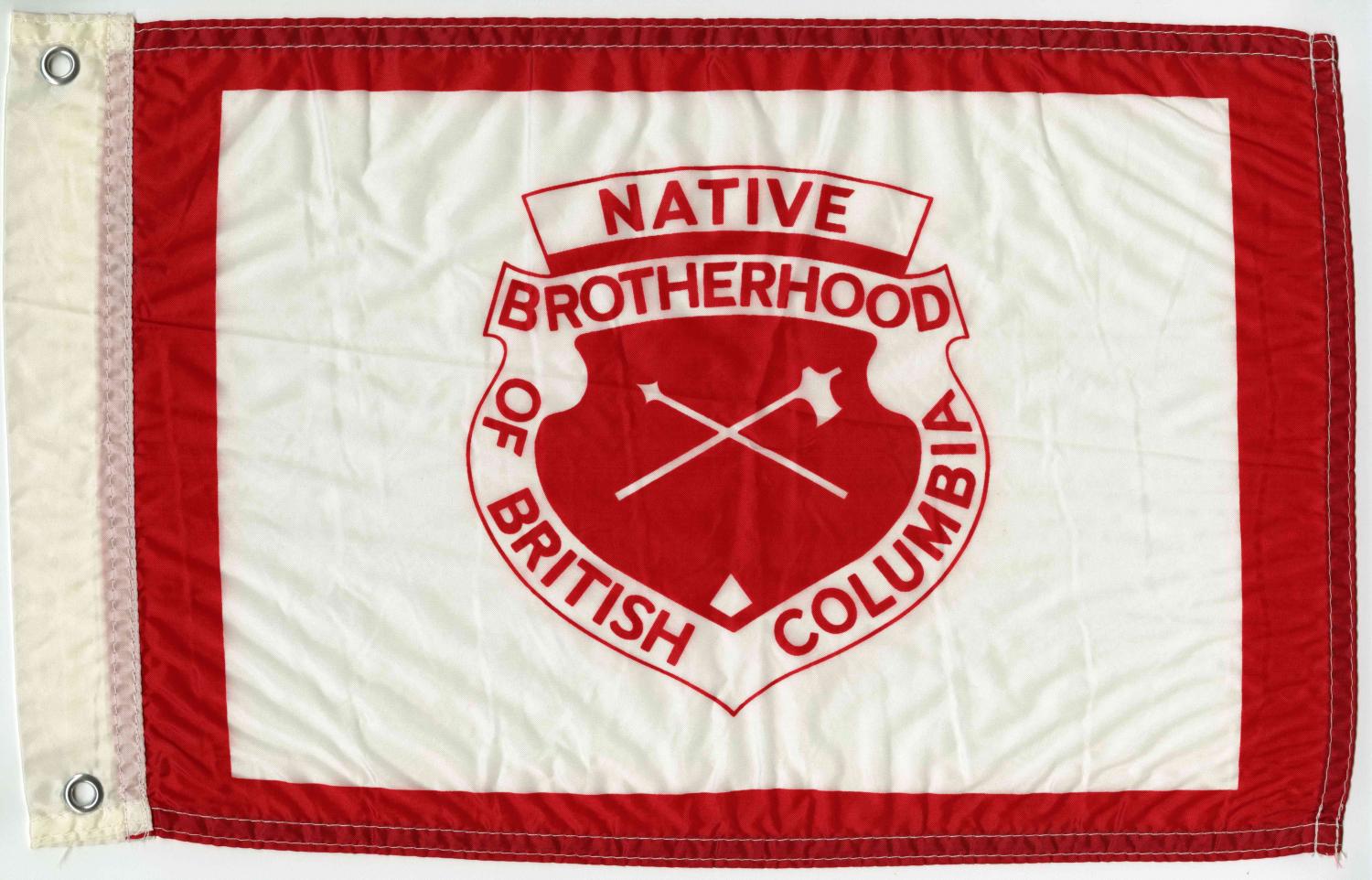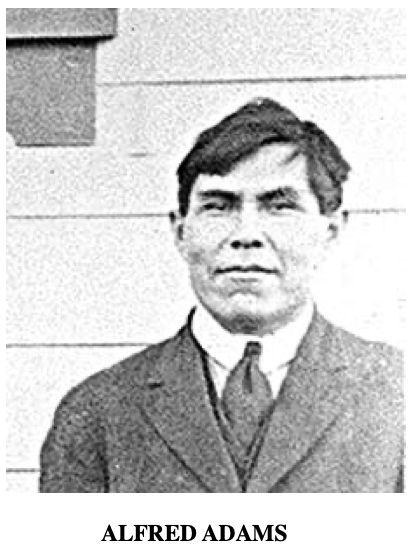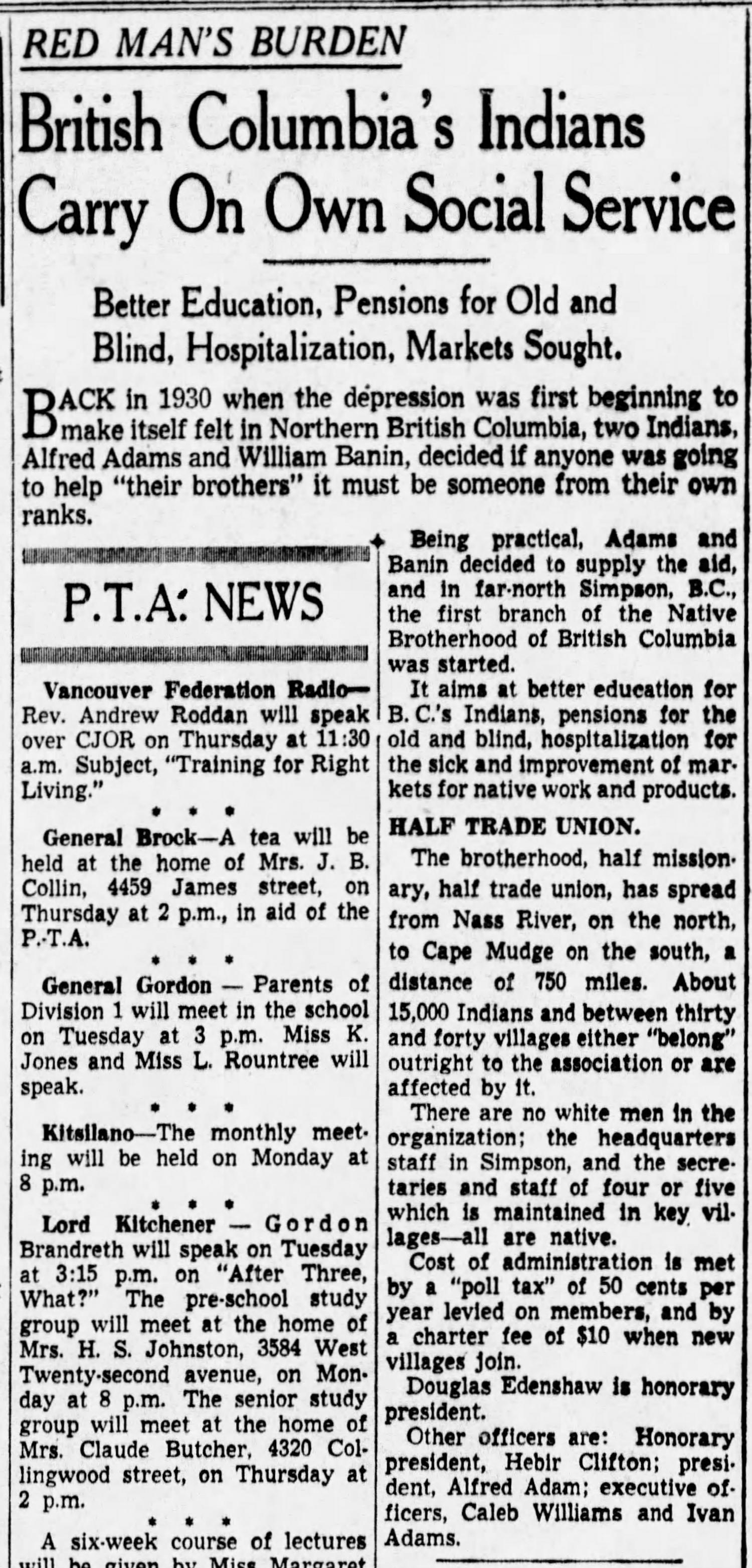The Native Brotherhood of B.C.
The Tsimshian and Haida form Canada’s longest-running Indigenous organization
Date: 1931
The Great Depression hit Canada hard, with a third of the country’s population unemployed and a fifth dependent on government assistance. For Indigenous communities in British Columbia, times were especially challenging. The federal government was reluctant to extend their relief efforts to First Nations, who also remained subject to the discriminatory and often cruel policies of the Indian Act.
Indigenous people had protested their treatment by the government for decades without much success when Alfred Adams, a Haida man from Masset on Haida Gwaii, went north to visit family in Alaska. While there, he attended two conventions held by a group called the Native Brotherhood. He returned home. Inspired by the level of organizing he had witnessed, Adams approached the local chiefs in Port Simpson, who held sway over the area’s Indigenous population. “We must talk as one, we must act as one,” he pressed them, “for only through an organized, united body will our voice be heard by the world.”
He won them over. In 1931, the Native Brotherhood of British Columbia (NBBC) was established by a group of mostly Tsimshian and Haida fishermen. Adams was elected its first president.
At first, the group prioritized the economic survival of Indigenous fishermen. This distinguished it from earlier Indigenous activism, which was exclusively centred around Aboriginal title to the land in the face of European encroachment. But within a decade, the organization’s mission would shift. While Canada was fighting in the Second World War, the NBBC spoke out against the conscription of Indigenous men, as well as forcing members of First Nations to pay income taxes. It was hypocritical, they argued, to expect a person to fight for and pay into a country while denying them the right to vote, one of the most oppressive measures of the Indian Act. The issue of income tax in particular unified Indigenous fishermen, which many saw as a threat to their economic survival.
By 1946, the Canadian public was growing more sympathetic to calls for reforming the Department of Indian Affairs. The NBBC was invited to speak in front of a new special joint committee of the Senate and House of Commons to consider revising the Indian Act. While there, the group condemned the residential school system and its patronizing approach towards First Nations. The Brotherhood, as well as other groups who spoke before the committee, called for more autonomy in how they educated the next generation.
The organization also raised awareness about Indigenous issues outside of Parliament Hill. Starting in 1944, the NBBC helped publish and disseminate a new publication called The Native Voice, which was written for Indigenous and non-Indigenous readers alike. During its decades-long run, the newspaper brought to light issues that had previously been discussed only in Indigenous circles, from land grabs to the discrimination and poverty experienced by Indigenous communities. It also formed connections between disparate ethnic groups, a feat in a time when government and society enforced and perpetuated segregation.
After tackling education, voting rights, and improved medical care, among other issues, the Native Brotherhood has returned to focus on economic issues facing Indigenous people in British Columbia: namely, marine resources, tourism and ecotourism, and forestry. To this day, the NBBC is Canada’s oldest active Indigenous organization. It remains a prominent voice for First Nations across the country and an example for political organizing and resistance.
Sources:
- "About Us ." The Native Brotherhood of British Columbia, https://nativebrotherhood.ca/sample-page/. Accessed 6 May 2021.
- O’Donnell, Jacqueline Patricia. The Native Brotherhood of British Columbia 1931-1950: A New Phase in Native Political Organization. University of British Columbia, 1985, https://open.library.ubc.ca/cIRcle/collections/ubctheses/831/items/1.0096506.
- Parker, Peter. "We Are Not Beggars": Political Genesis of the Native Brotherhood, 1931-1951. Simon Fraser University, 1992.





